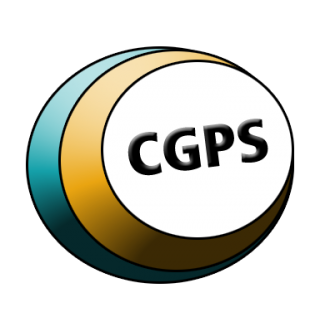Saturday, November 6, 12:00 PM to 2:00 PM, online


“There Are a Whole Lot Of Us In This Room! The IFS Model in Group Therapy”
Presented by Deborah Klinger, M.A, LMFT, CEDS-S
FREE to CGPS members! Suggested $20 donation for non-members.
Following on the heels of our 2016 workshop with IFS originator Dick Schwartz, CGPS member Deborah Klinger discusses how to integrate IFS theory and technique into our work with groups.
The Internal Family Systems (IFS) model, created by Richard Schwartz, PhD, LMFT, offers a non-pathologizing and collaborative view of human cognitive, emotional and somatic life and a clear, dynamic therapeutic approach for therapist and client transformation. Drawing from general and family systems theories, IFS approaches individuals as systems made up of parts and a core Self that operate according to systemic principles. This system includes vulnerable parts that contain painful feelings and negative beliefs (referred to as “burdens”) acquired earlier in life, and parts that have taken on protective roles, which work to keep the pain of these vulnerable parts from flooding the internal system. These protective parts are responsible for maladaptive coping behaviors, and often contribute to external conflict with others. IFS helps clients understand and work with their internal systems by developing compassionate relationships between Self and parts, relieving the burdens parts are carrying, and moving toward Self-leadership to facilitate healing. In IFS groups, members learn about their systems and get to know their parts in the context of relationships. There's room for creativity and flexibility in different types of groups, or in one group utilizing different types of exercises and modalities. In a group process format, IFS enables group members to identify parts of themselves that are activated by and react to the parts of other members. Group members learn to speak for, rather than from their parts, as they interact with one another, enabling them to experience Self-led, rather than parts-led, communication. IFS groups can also offer the opportunity for working with the system of a particular member, with other members role-playing parts of that member. Group leaders can include meditation, art exercises, dyad work, and myriad other options. In this workshop, I'll be explaining interpersonal dynamics from an IFS perspective, and leading experiential samples of various types of IFS group activities.
Presenter
Deborah Klinger, M.A, LMFT, CEDS-S, is in private practice in Durham, NC. Deborah received her Master's in 1990, and soon after began working in the field of eating disorders. Deborah is a Certified Internal Family Systems Therapist and Approved Consultant, Certified Eating Disorders Specialist and Approved Supervisor, an AAMFT Approved Supervisor, and Phoenix Rising Yoga Therapy practitioner. She's presented at many conferences. over the years. A graduate of the Trauma-Sensitive Yoga certificate training at the Trauma Center at JRI, she periodically teaches yoga for trauma, and her own “Love Thy Body: Yoga for Eating and Body Concerns.” She combines IFS, Sensorimotor Psychotherapy, DBT and EMDR for a holistic, body-mind approach to healing.
Certificate of Attendance
A two-hour attendance certificate will be provided. While these are not certified CE Contact Hours, our certificate is sufficient documentation for some licenses.

